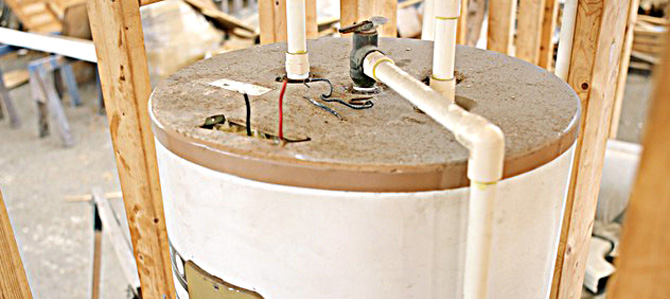When your hot water heater starts delivering luke-warm water for your daily shower, it’s time to call your nearest Toronto plumbers to determine the reason for it. In some cases, it may be possible to repair the problem, while in other cases it’s necessary to install a replacement unit. Water heaters generally become faulty for one of several very common reasons, such as:
Wear and Tear
Hot water heaters work hard, and the equipment can’t last forever. Corrosion in the water tank, faulty valves, and defective elements are all signs of wear and tear that takes place over years. If your water heater is struggling, it may be a result of its age. Find out when the heater was installed, or get your Toronto plumbers to inspect and evaluate the condition of the heater. If the plumber thinks it’s worth repair or servicing to maintain it, you might get a few more years’ usages out of it.
Water Leaks
One of the problems our Toronto plumbers see regularly is water leaks from inadequately-sealed water heaters. These are often present in older heaters and may show a lack of care or might simply be the result of age and wear and tear. Regardless of the reason for the leaks, they don’t improve without repair and may become worse. If the tank isn’t kept full, or it’s losing water because of leaks, it can lead to the burn-out of the unit.
Thermostat Failure
When the thermostat fails on a hot water heater, whether you need to replace the entire heater depends on the reason for failure. If the unit is producing water that is either too hot or completely cold in spite of being set at an average 55 to 65 degrees Celsius, there’s a good chance the thermostat is broken. You may be able to just replace it with a new one, but in the event that the unit is particularly old or the thermostat failure causes the element to burn out, your Toronto plumbers might feel it’s time to replace the entire water heater.
Built-Up Sediment
Sediment builds up in a hot water heater as a result of corrosion or the presence of calcium carbonate in your water, which separates and sinks to the bottom when it’s heated. It can cause the pipes and valves to clog and can end up in your bathwater. While it won’t do you any real harm, it’s rather unpleasant and gives the hot water a particular odor. If the sediment builds up covers the element, it can cause it to burn out. You might be able to get rid of sediment build-up by flushing out the water heater, but regular servicing and maintenance is your best bet for keeping it at bay.
If you notice that your hot water heater is no longer producing sufficient water, the pressure is low, the water smells strange or is either too hot or too cold you may need to call your Toronto plumbers for help.

